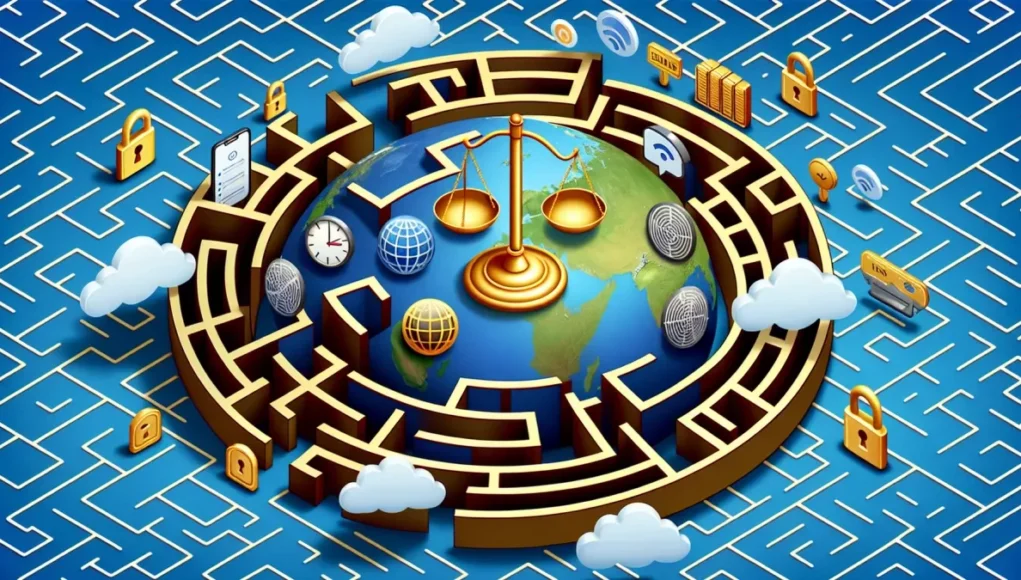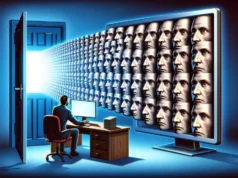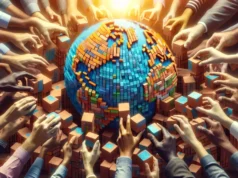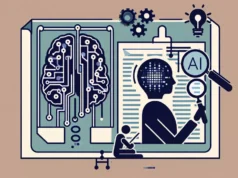In an age when technology sets the pace of our lives, the concept of Internet governance has become a hotbed of global dialogue, stirring debate and raising questions that defy traditional borders and regulations. At the heart of this debate lies the issue of enforcing online ethics, challenging the very structure of the Internet, long celebrated for its borderless nature.
The question of who rules the world wide web seems relatively simple on the surface. After all, the Internet was created by people, so it should be governed by people or nations too. Right? In reality, however, cyberspace governance is a much more complex, open-ended issue. Unlike physical terrain divided into politically recognized state territories, the Internet is a borderless space that can be accessed virtually from any nook and cranny of the world, ignoring the physical location. This pan-regional technological phenomenon has immensely complicated how we apply regulations, promote safety, and wrestle with the responsibility of maintaining global online ethics.
The borderless Internet is generally governed by a multi-stakeholder model approach, involving both the technical community and governments. Internet governance entails various technical standards and protocols, policies on cybercrime and intellectual property rights, matters of privacy and freedom of expression, and much more. While this multi-stakeholder model has largely been successful in maintaining a harmonious digital world, it has presented challenges when it comes to enforcing a uniform approach to online ethics globally.
The International Telecommunication Union, Internet Society, and Internet Corporation for Assigned Names and Numbers (ICANN) are some of the major bodies actively involved in shaping a safe and fair digital world. But herein lies the problem: even though they strive to enforce online ethics at a global scale, the standards of what constitutes ethical behavior differ drastically from one culture or country to another. As a result, the struggle to maintain a joint front on digital ethics becomes exceedingly complicated.
For instance, the discourse on the right to privacy varies heavily among nations. While the European Union has enacted the General Data Protection Regulation (GDPR) to reinforce data privacy rights of individuals, other parts of the world might hold a different view. Similarly, the concept of intellectual property and the laws related to cybercrime also differ across jurisdictions.
Further intensifying the problem is the widespread phenomenon of online anonymity, which not only hampers tracking violators but also makes enforcement of sanctions challenging, if not impossible. Then there’s the rapid technological evolution to consider – a pace so fast that it surpasses regulatory frameworks, leaving nations scrambling to keep up. Adapting laws, governance structures, and ethical norms to this pace is a monumental challenge in and of itself.
The democratic nature of the Internet makes it possible for any person, irrespective of their location, to voice an opinion, propagate information, or even spread falsehoods, deepening the problem at hand. Social media platforms – Facebook, Twitter, and others – have come under the spotlight for their role in spreading misinformation, hate speech, and other forms of unethical behaviour. And while these tech giants have taken steps to curb such actions, the question of defining what exactly is ethical or unethical, and who gets to make this call, remains up in the air.
Internet governance, therefore, is standing on a set of jigsaw puzzle pieces that seem impossible to assemble due to their convoluted outlines. To find a global solution to online ethics and Internet governance, what we need is cooperation across boundaries, cultures, and jurisdictions.
Various conferences and forums, like the annual Internet Governance Forum (IGF), aim to facilitate an open dialogue among stakeholders from multiple sectors in order to address the above concerns. Additionally, initiatives such as the United Nations’ Sustainable Development Goal (SDG) 16, which aims to “promote peaceful and inclusive societies for sustainable development, provide access to justice for all and build effective, accountable and inclusive institutions at all levels”, could be instrumental in promoting global digital ethics.
However, the overarching consensus is clear: creating a universally accepted code of ethics for the borderless Internet is a Sisyphean task – a problem requiring a global solution, orchestrated harmony among nations, and unwavering commitment to finalizing and following the set rules.
In summary, global online ethical enforcement and borderless Internet governance comprises a multitude of challenges that call for an international regulatory intervention. As technology continues to evolve at a breakneck speed, a uniform approach to online ethics might be elusive. Yet, it’s a quest we must collectively undertake to ensure a safer, more equitable digital world for all, irrespective of the physical borders confining us.
Sources:
Internet Society, 2021; ICANN, 2021; IGF, 2021; United Nations SDG, 2021.






